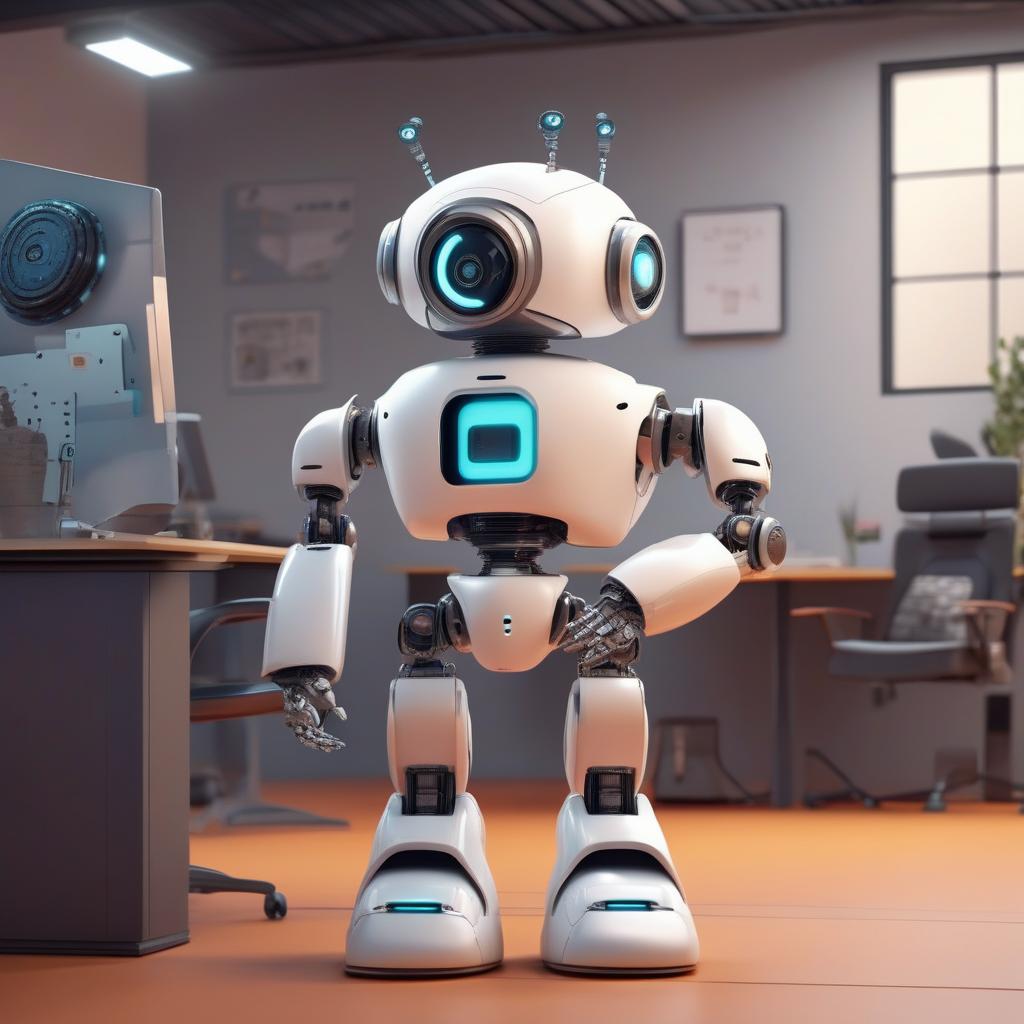AI Chatbots: Disrupting Customer Support

AI chatbots in customer service have been nothing short of remarkable. According to recent statistics, the global chatbot market is expected to reach $1.25 billion by 2025. This exponential growth can be attributed to the numerous benefits that AI chatbots bring to the table. By leveraging natural language processing and machine learning algorithms, chatbots can understand and respond to customer queries in real-time, eliminating the need for human intervention.
Enhancing Efficiency with AI Chatbots
One of the key advantages of AI chatbots is their ability to enhance efficiency in customer support. Unlike human agents who may have limitations in terms of availability and speed, chatbots can handle multiple customer inquiries simultaneously and provide instant responses. This not only reduces customer wait times but also enables businesses to handle a higher volume of queries without compromising on quality. In fact, a study by IBM found that chatbots can handle up to 80% of routine customer inquiries, freeing up human agents to focus on more complex issues.
Another aspect of efficiency lies in the 24/7 availability of AI chatbots. Customers today expect round-the-clock support, and chatbots can fulfill this demand effortlessly. By providing instant responses at any time of the day or night, chatbots ensure that customers receive timely assistance, regardless of their geographical location or time zone. This level of availability not only enhances customer satisfaction but also helps businesses stay competitive in the market.
Benefits of AI Chatbots in Customer Support
The benefits of AI chatbots in customer support go beyond just efficiency. These intelligent virtual assistants offer a range of advantages that can significantly impact a business’s bottom line. Firstly, chatbots provide consistent and accurate responses, eliminating the risk of human error. This not only improves customer satisfaction but also helps build trust and loyalty.
Additionally, AI chatbots can handle a wide variety of inquiries, from product information to order tracking and even technical troubleshooting. By providing comprehensive support across multiple channels, including websites, messaging apps, and social media platforms, chatbots ensure a seamless customer experience. This omnichannel support capability not only enhances convenience for customers but also allows businesses to reach a larger audience.
AI chatbots have the ability to collect and analyze valuable customer data. By tracking customer interactions and preferences, chatbots can provide businesses with valuable insights that can be used to personalize marketing efforts and improve overall customer satisfaction. This data-driven approach enables businesses to make informed decisions and stay ahead of the competition.

AI Chatbots: A Game Changer for Businesses
AI chatbots have emerged as a game changer for businesses of all sizes and industries. By automating customer support processes, chatbots enable businesses to save time, reduce costs, and increase productivity. According to a report by Juniper Research, businesses can save up to $8 billion per year by 2022 by implementing chatbots.
Chatbots can handle a large volume of inquiries simultaneously, allowing businesses to scale their customer support operations without the need for additional human resources. This scalability not only ensures that customer queries are resolved promptly but also helps businesses cater to peak demand periods without any disruptions.
In addition to cost savings and scalability, AI chatbots also contribute to higher customer satisfaction rates. By providing instant and accurate responses, chatbots ensure that customers receive the support they need in a timely manner. This level of responsiveness not only enhances the overall customer experience but also helps businesses build a positive brand image.
Transforming Customer Experience with AI Chatbots
The customer experience has become a crucial differentiating factor for businesses in today’s competitive market. AI chatbots play a vital role in transforming the customer experience by providing personalized and proactive support. By leveraging customer data and machine learning algorithms, chatbots can anticipate customer needs and offer relevant suggestions or recommendations.
For instance, if a customer is browsing an e-commerce website and has a query about a product, a chatbot can not only provide the necessary information but also suggest related products that might be of interest to the customer. This personalized approach not only enhances customer satisfaction but also increases the likelihood of upselling or cross-selling.
Chatbots can provide proactive support by reaching out to customers with relevant information or updates. For example, if a flight is delayed, a chatbot can proactively notify passengers and provide alternative travel options. This proactive communication not only saves time and effort for customers but also showcases the brand’s commitment to customer service.
The Role of AI Chatbots in Self-Service Support
Self-service support has gained immense popularity among customers who prefer quick and independent solutions to their queries. AI chatbots play a crucial role in enabling self-service support by providing real-time assistance and guiding customers through the resolution process.
Chatbots can be integrated into websites, mobile apps, and messaging platforms, allowing customers to access support whenever and wherever they need it. By offering interactive and intuitive interfaces, chatbots simplify complex processes and empower customers to find answers to their questions on their own.
AI Chatbots can provide step-by-step instructions, troubleshoot common issues, and even offer video tutorials or product demonstrations. This self-service capability not only reduces the burden on human support agents but also empowers customers to resolve their issues independently, leading to improved customer satisfaction and reduced support costs.
Challenges and Limitations of AI Chatbots
While AI chatbots offer numerous benefits, they also come with their fair share of challenges and limitations. One of the main challenges is the complexity of natural language processing. Understanding and interpreting human language accurately can be a challenging task for chatbots, especially when faced with slang, colloquialisms, or ambiguous queries.
Another limitation is the inability of chatbots to handle complex or emotionally charged situations. Human support agents are better equipped to handle sensitive issues or empathize with customers who are frustrated or upset. Chatbots may struggle to provide the same level of emotional intelligence and empathy, which can impact the overall customer experience.
Chatbots may face limitations in terms of their knowledge base. If a chatbot is not properly trained or lacks access to up-to-date information, it may provide inaccurate or outdated responses. This can lead to customer frustration and dissatisfaction.

Overcoming Obstacles: Advancements in AI Technology
To overcome the challenges and limitations of AI chatbots, advancements in AI technology are constantly being made. Natural language processing algorithms are becoming more sophisticated and are better equipped to understand and interpret human language accurately. Machine learning techniques are also being utilized to improve chatbot performance by continuously learning from customer interactions and adapting to their needs.
Advancements in sentiment analysis and emotional intelligence algorithms are enabling chatbots to better understand and respond to customers’ emotions. This helps create a more personalized and empathetic customer experience.
Additionally, the integration of chatbots with knowledge management systems and databases ensures that chatbots have access to accurate and up-to-date information. This improves the quality of responses and reduces the risk of providing incorrect information.
AI Chatbots: The Future of Customer Support
As AI technology continues to evolve, AI chatbots are poised to become the future of customer support. According to Gartner, by 2022, 70% of customer interactions will involve emerging technologies such as chatbots, machine learning, and virtual assistants.
The future of customer support lies in the seamless integration of AI chatbots with other emerging technologies such as voice recognition, natural language generation, and augmented reality. This integration will enable businesses to provide even more immersive and personalized customer experiences.
AI chatbots are disrupting customer support by enhancing efficiency, improving the customer experience, and transforming self-service support. Despite the challenges and limitations, advancements in AI technology are overcoming these obstacles and paving the way for a future where chatbots play a central role in customer support. As businesses strive to stay competitive in the digital age, embracing AI chatbots is no longer a luxury but a necessity.
FAQs about AI Chatbots
Q1: Can AI chatbots understand multiple languages?
Yes, AI chatbots can be programmed to understand and respond in multiple languages. They can be customized to cater to the language preferences of customers from different regions.
Q2: How secure is customer data when interacting with AI chatbots?
Customer data security is a top priority for businesses implementing AI chatbots. Chatbot platforms adhere to strict data protection regulations and employ robust security measures to ensure the confidentiality and integrity of customer data.
Q3: Can AI chatbots replace human customer support agents entirely?
While AI chatbots can handle a significant portion of routine customer inquiries, they cannot completely replace human agents. Human interaction and emotional intelligence are still essential for complex or sensitive customer issues.
Q4: How long does it take to implement AI chatbots in a business?
The time required to implement AI chatbots depends on various factors, including the complexity of the chatbot system and the integration with existing customer support infrastructure. It can range from a few weeks to several months.
Q5: Are AI chatbots cost-effective for small businesses?
AI chatbots can be cost-effective for small businesses as they eliminate the need for additional human resources and provide round-the-clock support. There are also various affordable chatbot platforms available that cater specifically to small businesses.




